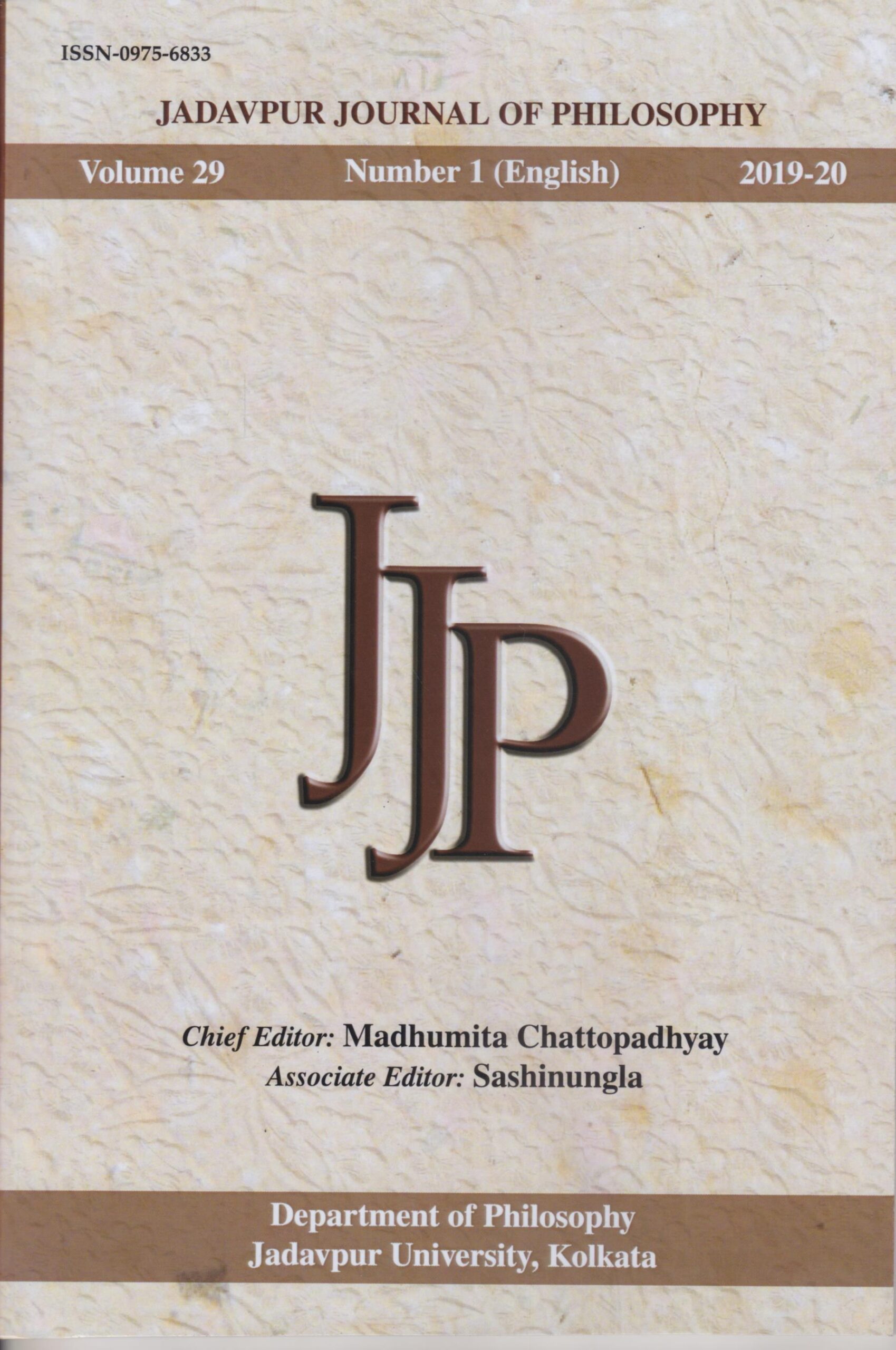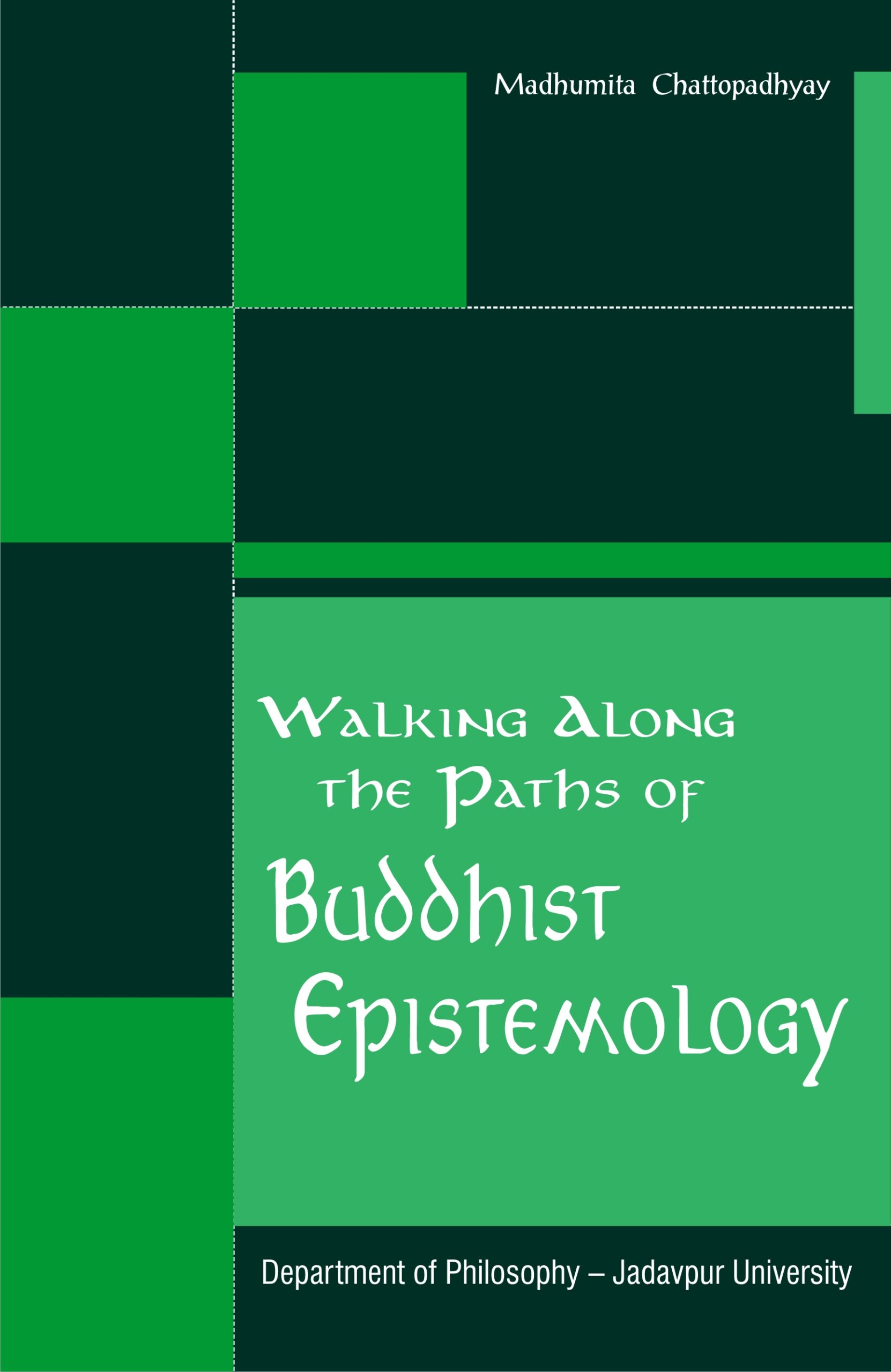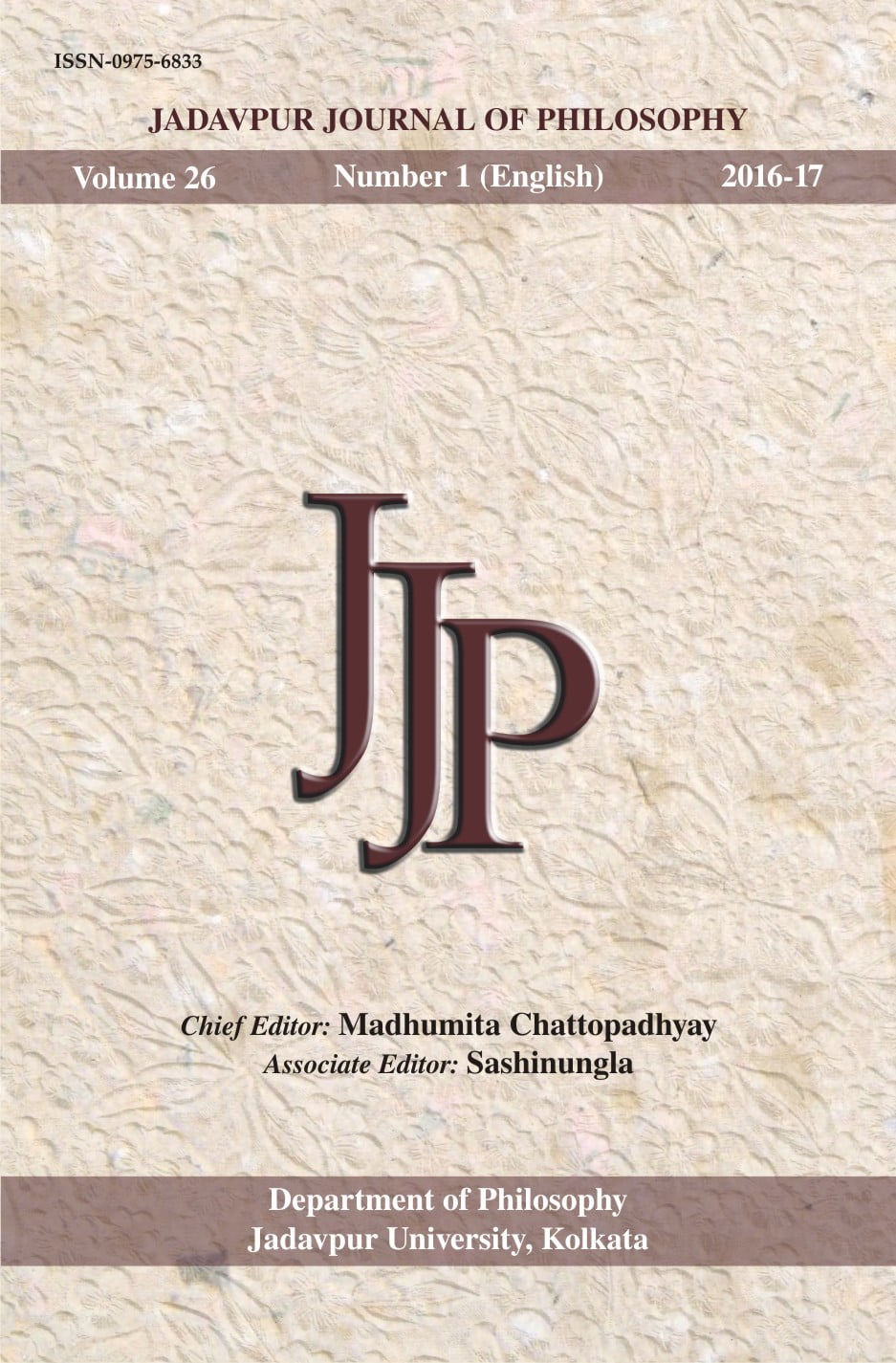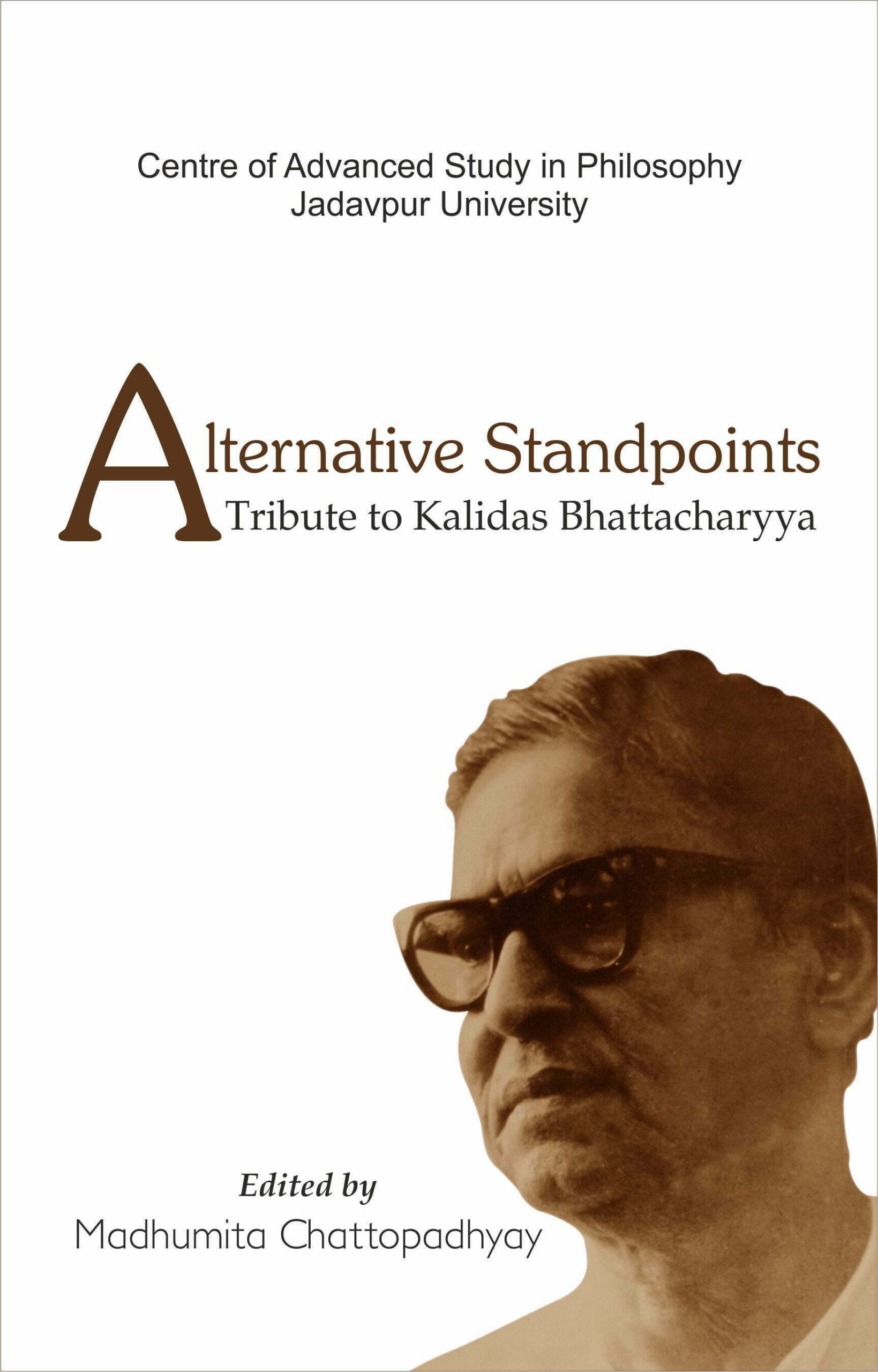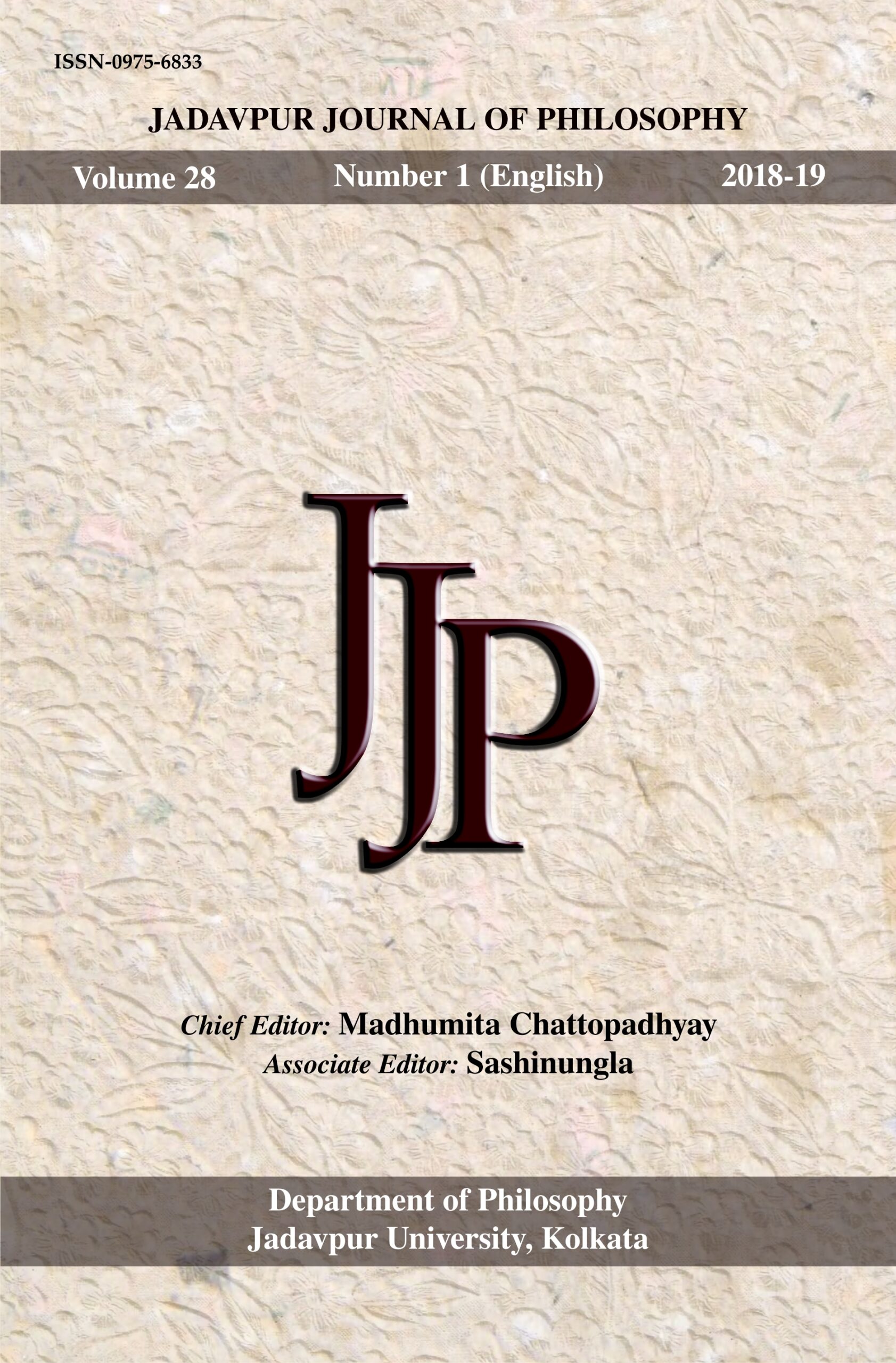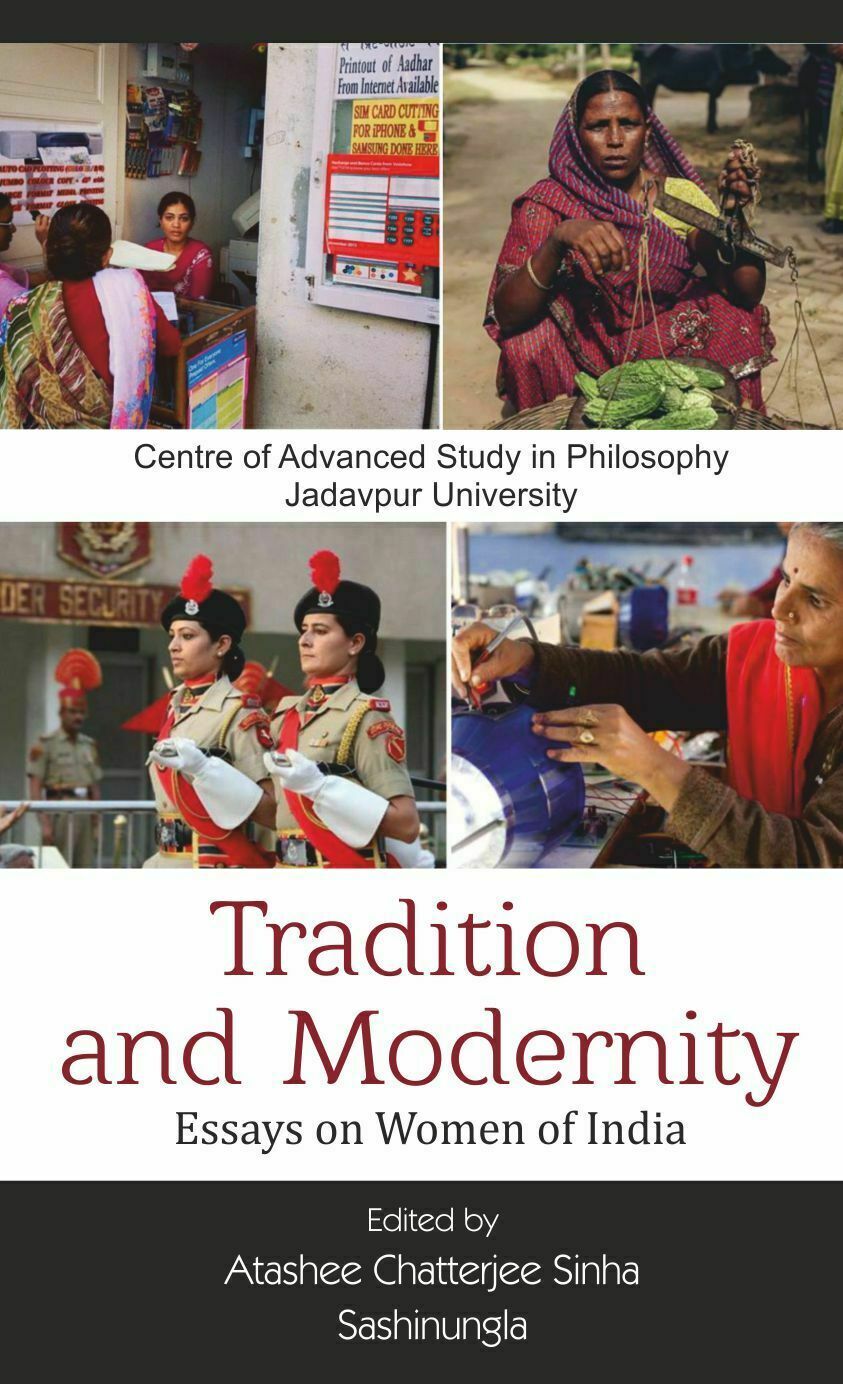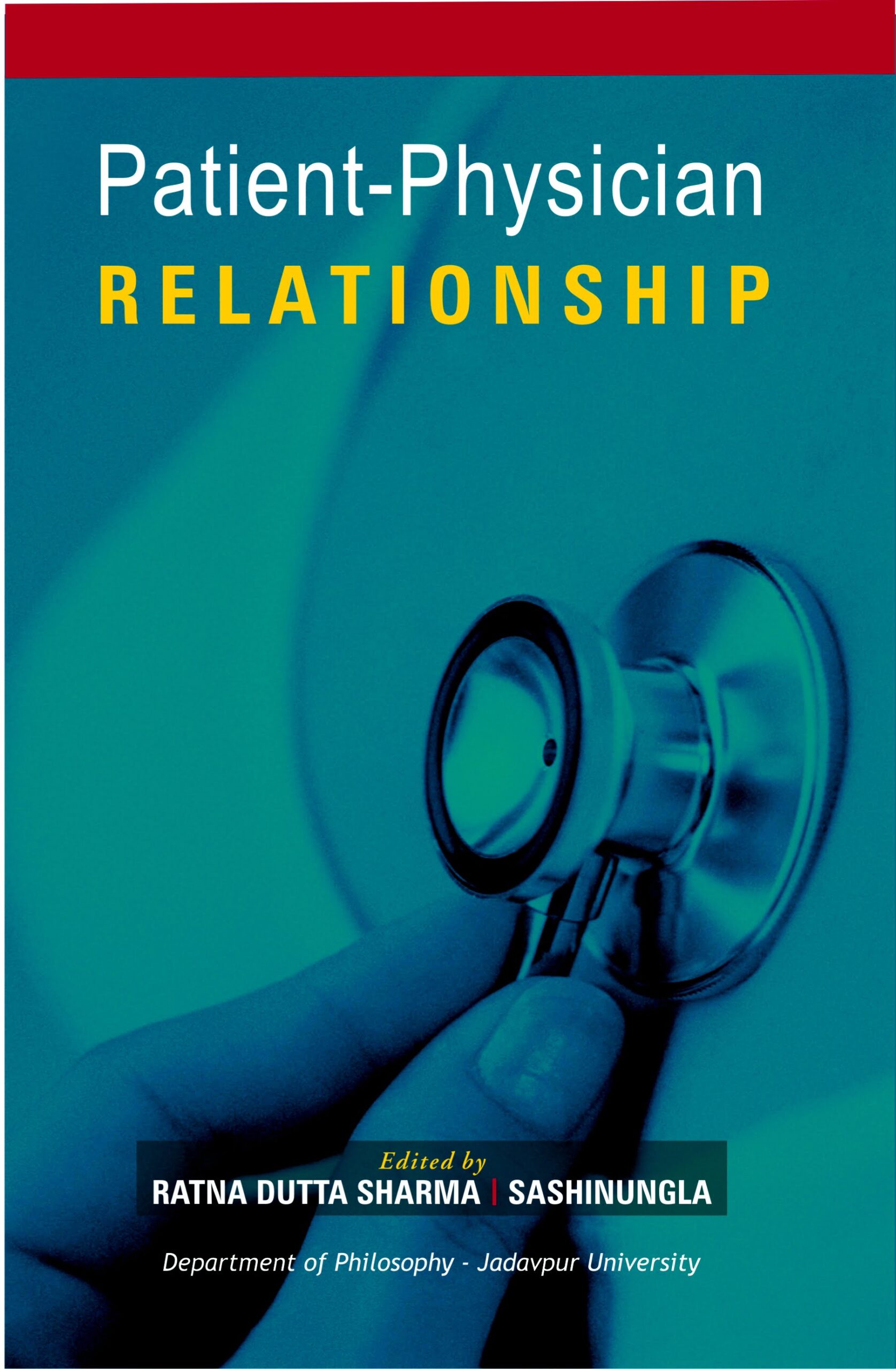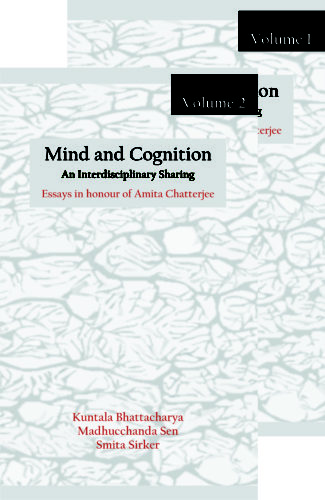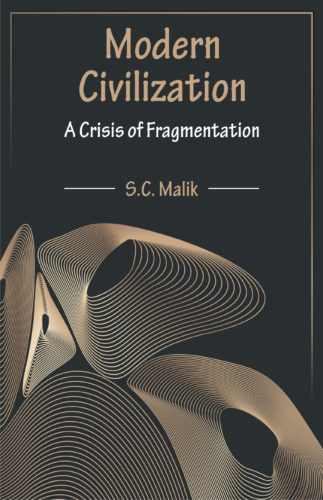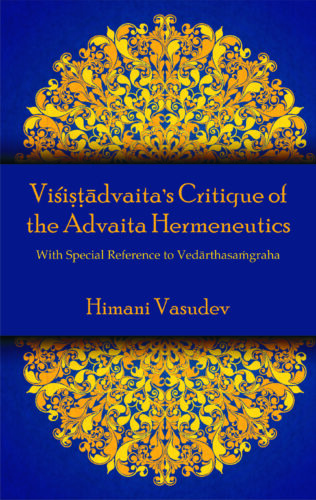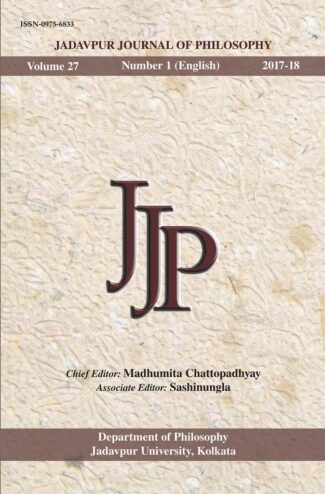

Jadavpur Journal No....
Jadavpur Journal No. 27
by: Madhumita Chattopadhyay , SashinunglaJadavpur Journal of Philosophy is a refereed, bi-issue journal, in English (No. 1) and Bengali (No. 2) published annually by the Department of Philosophy, Jadavpur University, Kolkata, India. The journal volume in Bengali is titled Darsan Biksa. The journal is devoted to the publication of original scholarly papers in any branch of philosophy. Its objective is to encourage contributions from scholars, dealing with specific philosophical problems connected with their respective fields of specialization.
₹300.00 Original price was: ₹300.00.₹270.00Current price is: ₹270.00.
ISBN: 9788100000786
Year Of Publication: 2018
Edition: 1st
Pages : 143p.
Language : English
Binding : Paperback
Publisher: Jadavpur University
Size: 23
Weight: 250
Jadavpur Journal of Philosophy is a refereed, bi-issue journal, in English (No. 1) and Bengali (No. 2) published annually by the Department of Philosophy, Jadavpur University, Kolkata, India. The journal volume in Bengali is titled Darsan Biksa. The journal is devoted to the publication of original scholarly papers in any branch of philosophy. Its objective is to encourage contributions from scholars, dealing with specific philosophical problems connected with their respective fields of specialization.
- Sale!Mind and Cognition An Interdisciplinary Sharing by: Kuntala Bhattacharya, Smita Sirker, Madhucchanda Sen,
₹4,000.00Original price was: ₹4,000.00.₹3,600.00Current price is: ₹3,600.00.“Knowing one’s tradition is important; but only when tradition is not presented as fossilised but as continuous with our present-day living. In most places we do not make enough effort to show the link between the classical philosophical thoughts and the contemporary world view. We need to show that we can still meaningfully interact with the classical philosophical systems”, writes Amita Chatterjee in her seminal essay “In Search of Counterpoints”. This volume is dedicated in her honour. “Knowing one’s tradition is important; but only when tradition is not presented as fossilised but as continuous with our present-day living. In most places we do not make enough effort to show the link between the classical philosophical thoughts and the contemporary world view. We need to show that we can still meaningfully interact with the classical philosophical systems”, writes Amita Chatterjee in her seminal essay “In Search of Counterpoints”. This volume is dedicated in her honour. Chatterjee belongs to a genre of philosophers, who have as part of their cultural heritage, like Raghunath Siromani and Immanuel Kant. Chatterjee, in addition to breaking cultural boundaries, desired to break boundaries that have kept professional disciplines apart. She deeply believes that there are certain basic questions that are questions not for any specific discipline. These questions, she thinks, could not be answered by remaining within one single discipline. It is no surprise that she was the founder of the first Cognitive Science Centre in India. Responding to her multifaceted academic talent, forty academics from diverse disciplines and from all over the world have contributed papers to this volume. The major areas of Chatterjee’s interest that feature in this volume are: (i) Fusion Philosophy, (ii) Mind and Cognition, (iii) Mind and Perception, (iv) Mind and Language, (v) Logic and Vagueness, (vi) Logic, (vii) Indian Philosophy, and (viii) Philosophy, Society and Popular Culture. Chatterjee’s intellectual autobiography and her responses to each of the papers are parts of this volume.
ISBN 9788124609514 (vol. 1)
ISBN 9788124609521 (vol. 2)
- Sale!An Introduction to Jain Philosophy by: Parveen Jain
₹1,600.00Original price was: ₹1,600.00.₹1,440.00Current price is: ₹1,440.00.It is well-known that the Jain tradition has been extremely influential in the development of Indian thought and culture. The Jain tradition teaches that there is an interdependence of perception, knowledge, and conduct unified by an axiomatic principle of non-violence in thought, speech, and action. In this way, non-violence defines the core of the Jain tradition, which has had a profound effect on other dharmic traditions originating in India. Jain Dharma is so significant that in some ways it may be incomplete to attempt to understand other Indian traditions (such as Buddhism or Hinduism) without knowing the basics of the Jain tradition, since these other traditions developed in an ongoing dialogue with the insights and wisdom of Jain respondents and visionaries.
This book enables the reader to enjoy a comprehensive journey into the intricate world of Jain thought and culture in a way that is philosophical in its compelling rationality, deeply spiritual in its revelations, yet accessible in its language. The organization of this book allows the reader to engage in an overview of the central teachings of the Jain tradition, but also to ascertain the profundity of its depths. It can be read with equal efficacy in succession from beginning to end, or pursued by individual topics of interest to the reader. Either strategy will have the same effect: a systematic understanding of what the timeless teachings of Jain thinkers have to say about the universal issues of the human condition – and how we might understand our harmonious relationship with other living entities as a powerful and effective spiritual journey. - Sale!Modern Civilization by:
₹800.00Original price was: ₹800.00.₹720.00Current price is: ₹720.00.The crisis of the age inheres in this, that notwithstanding the century’s mind-numbing disasters, it persists in subscribing to propositions which have logically led to the atomization of the whole cloth of human experiencing, and being. Great indeed is the value which is placed on the procedure of analytic dismemberment. While the method has certainly been result-producing, materially, in its wake it has brought immense suffering – both physical and spiritual. The price paid for a lopsided advance is thirty major wars – with their toll of one hundred and thirty million lives, and the irreparable destruction of the natural environment. The time demands a reappraisal of the basic paradigms of human existence, but the hegemony of well-entrenched vested interests – material or intellectual – would seem to preclude this.
The “advanced” people among the mankind of the day become suicidally specialized. For, if the mechanical model of thought has been of advantage in man’s preceding unfolding, the same, what may be called the “survival” paradigm, now creates dangerous dualities, binary oppositions (you–me, body–mind, East–West, etc). The model has outlived its usefulness merely enforcing dormancy on a major part of the human brain.
It behoves mankind to choose wisely right now – since parallel to the socio-economic, scientific and technological revolutions there has got to be the overdue radical psychic transformation. The first step towards clearing the fateful crisis would therefore be to be aware and end the hold of the linear, causal, mechanical thought orientation over the intellectual culture of the times.
Delving deep into the epistemological cum ontological causation of the emergency confronting the being and becoming of man, this volume provokes the thoughtful lay reader to a serious engagement with his or her self. - Sale!Visistadvaita’s Critique of the Advaita Hermenqutics by: Himani Vasudev
₹500.00Original price was: ₹500.00.₹450.00Current price is: ₹450.00.Vedānta is the very heart of Indian philosophy. The various schools of Vedānta have been explored under diverse categories including ontological and epistemological, but they are a storehouse of so much more. “Hermeneutics” in simple words can be the theory of interpretation and this book has studied the critique of the Advaita hermeneutics by Rāmānujācārya based on Vedic statements like tat tvam asi, tadaikāta bahu syāma, neha nānāsti kiñcana and many others in his book Vedārthasaṁgraha which mirrors a complete vision of the Upaniṣads. Rāmānujācārya has shown how the Śruti statements can be seen in a coherent manner resolving the conflicts of bheda and abheda. The nature of a word and its various śaktis, followed by how successful are words in describing the concepts of sat, cit and ānanda, are also discussed here.
This book is an initial effort in the hermeneutic studies of Indian texts, which have been kept limited to the scope of philosophy, theology or religion alone. Many more linguistic treasures can be found here. - Sale!Navya Nyaya Philosophy of Language by:
₹400.00Original price was: ₹400.00.₹360.00Current price is: ₹360.00.This book represents the philosophy of language in Navya-Nyaya, based upon an analysis of the “Verbal Suffix Chapter” (Akhyatavada) of Gangesha’s Tattvacintamani. Since this chapter elaborates what kind of verbal understanding is generated and discusses related issues, the book demonstrates the main features of that philosophy of language and serves as a good introduction to that. The analysis mainly deals with Gangesha, but in some cases it refers to Raghunatha. Since the book is an attempt to pursue philological exactness and philosophical analysis, it is hoped to interest not only Sanskrit scholars, but also philosophers in general.
The book consists of four lectures. Lecture I clarifies Gangesha’s view of the meaning of the suffixes of a finite verb, which (meaning) is greatly disputed among the Navya-Nyaya philosophers, the Mimamsa philosophers, and the Grammarians. Lecture II investigates how Gangesha determines the meaning of words and illustrates that his method bears upon ontological categories of Vaisheshika. Lecture III deals with Gangesha’s “Five Definitions of Invariable Concomitance Section” (Vyaptipancaka) and elucidates the relation between meaning and the logical structure of the definitions. The lecture also provides diagrams as a tool to represent the structure. Lecture IV explains the realistic standpoint of Navya-Nyaya by clarifying the concept of the counterpositive (pratiyogin) of absence (abhava), or a thing whose existence is negated, focusing on empty terms or non-factual expressions such as “a round triangle”, “the present King of France”, “a rabbit’s horn”, and so forth. The lecture delineates how Udayana, Gangesha, and Raghunatha observed and, as the time passed, did realism thoroughly in language analysis.


